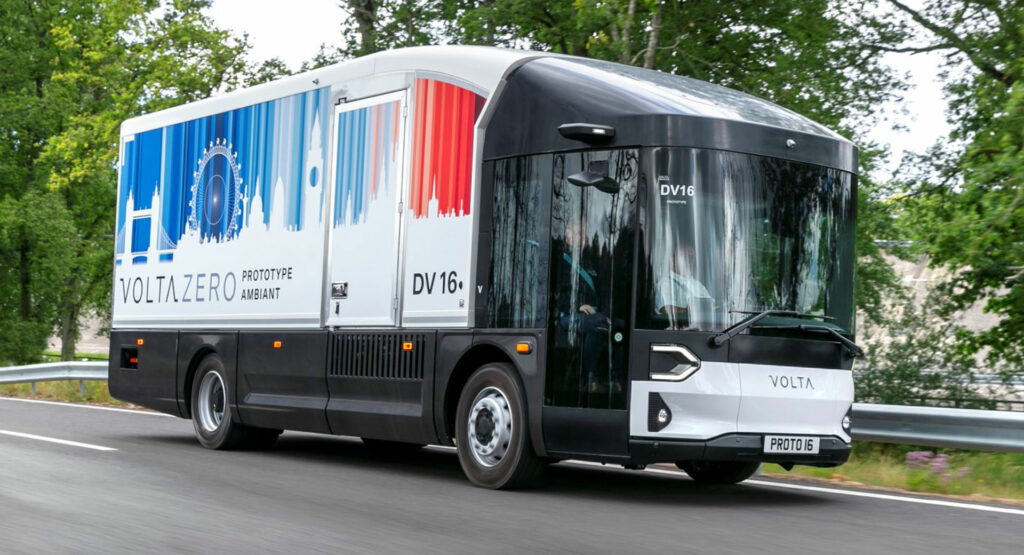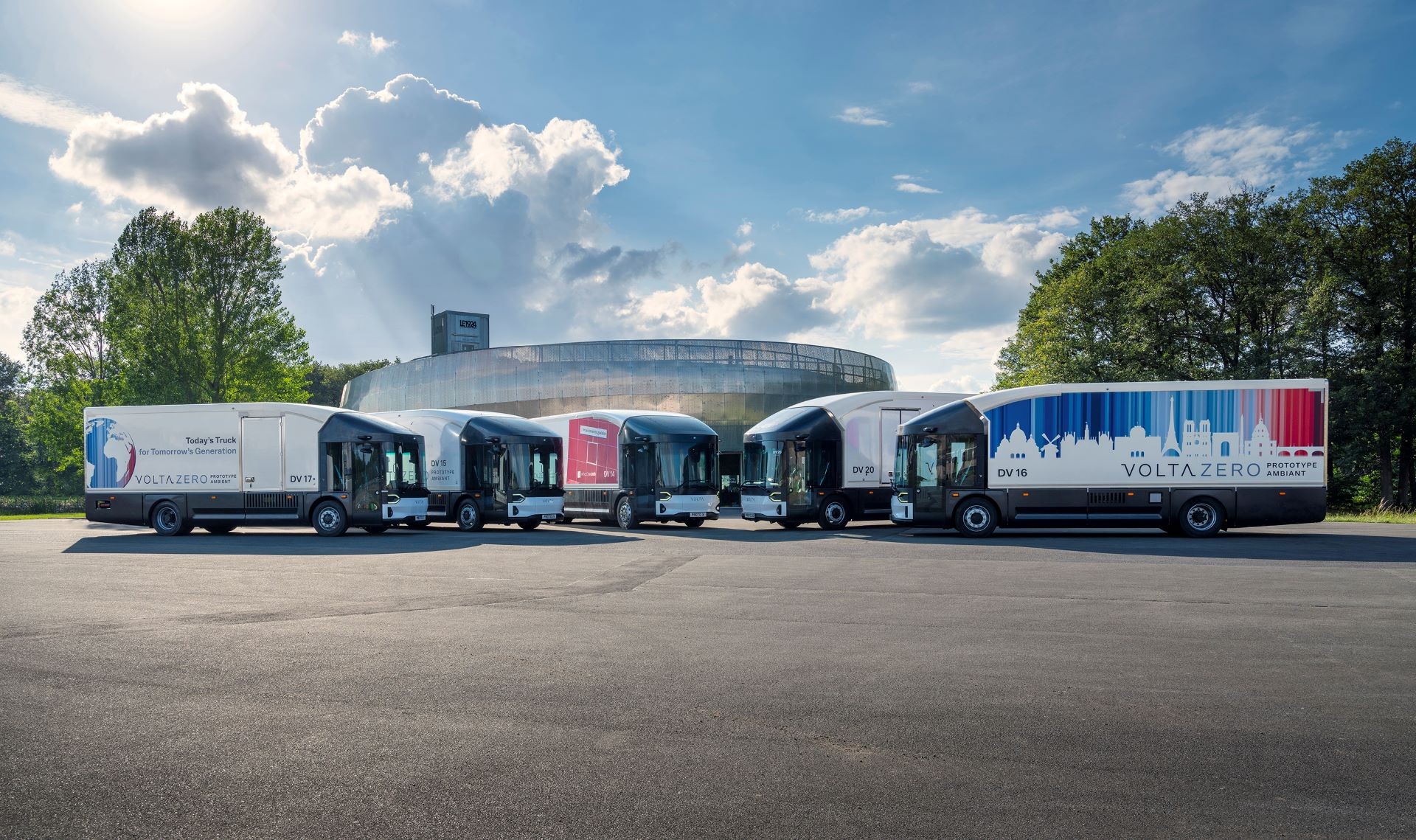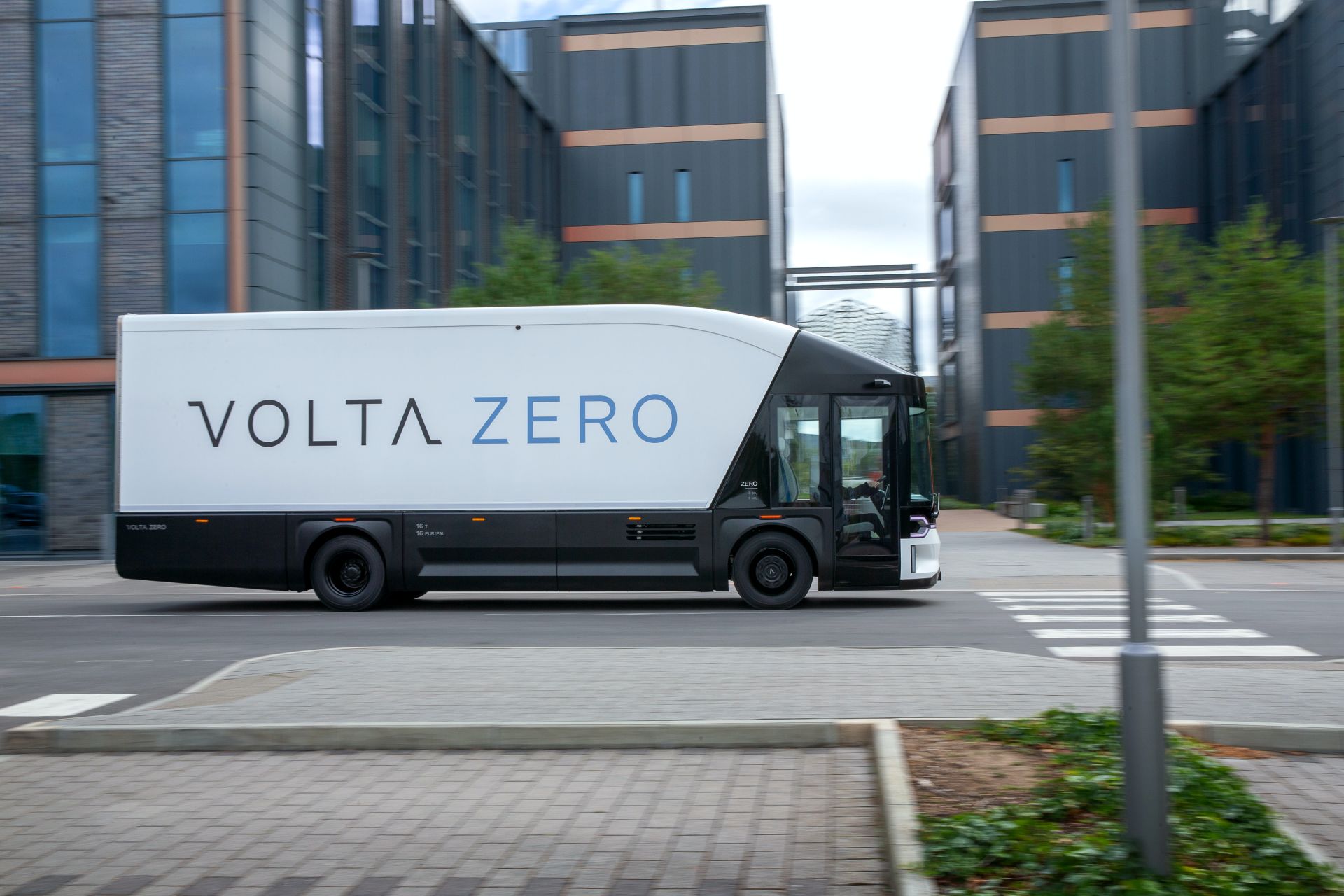Volta Trucks is moving closer to starting customer deliveries of its all-electric Zero semi-truck having just completed its first customer driving evaluation and feedback sessions.
The event took place at UTAC Autodrome de Linas-Montlhery in Paris and featured a handful of Volta’s Zero Design Verification prototypes.
A number of customers provided Volta with their feedback on the truck and Volta says it will use this to develop next-generation Production Verification prototypes. These new prototypes will start to be built at the company’s contract manufacturing facility in Steyr, Austria over the summer.
Once built, the Production Verification prototypes will be loaned to customers for extended periods later this year. Volta will then start to produce the first customer-specification vehicles in early 2023.
“Today is a huge moment for Volta Trucks, our customers, and the decarbonization and sustainability of our cities,” Volta Trucks chief executive Essa Al-Saleh described in a statement. “Since the reveal of the Volta Zero in September 2020, we have been working at industry-leading pace to bring the vehicle to market because that is what our customers are demanding. To be able to let them evaluate prototype full-electric trucks less than 2 years since we revealed the demonstrator vehicle, and less than 18 months since the actual engineering project started, is the best example of the speed we are working at.”
Read More: Electric Volta Zero Truck To Hit The Streets Of London This Summer
“These are very early and relatively immature prototypes, that customers are never normally able to experience, but their feedback has been overwhelmingly positive,” Al-Saleh added. “This gives us added confidence and validation that we will deliver world-class zero-tailpipe emission commercial vehicles to our customers, at volume, starting early next year.”
Volta will host a number of other customer evaluation events and prototype test drives for members of the media through the second half of 2022.
The Volta Zero can be ordered with either a 150 kWh or 225 kWh battery pack and has been designed to replace several smaller delivery vans.





